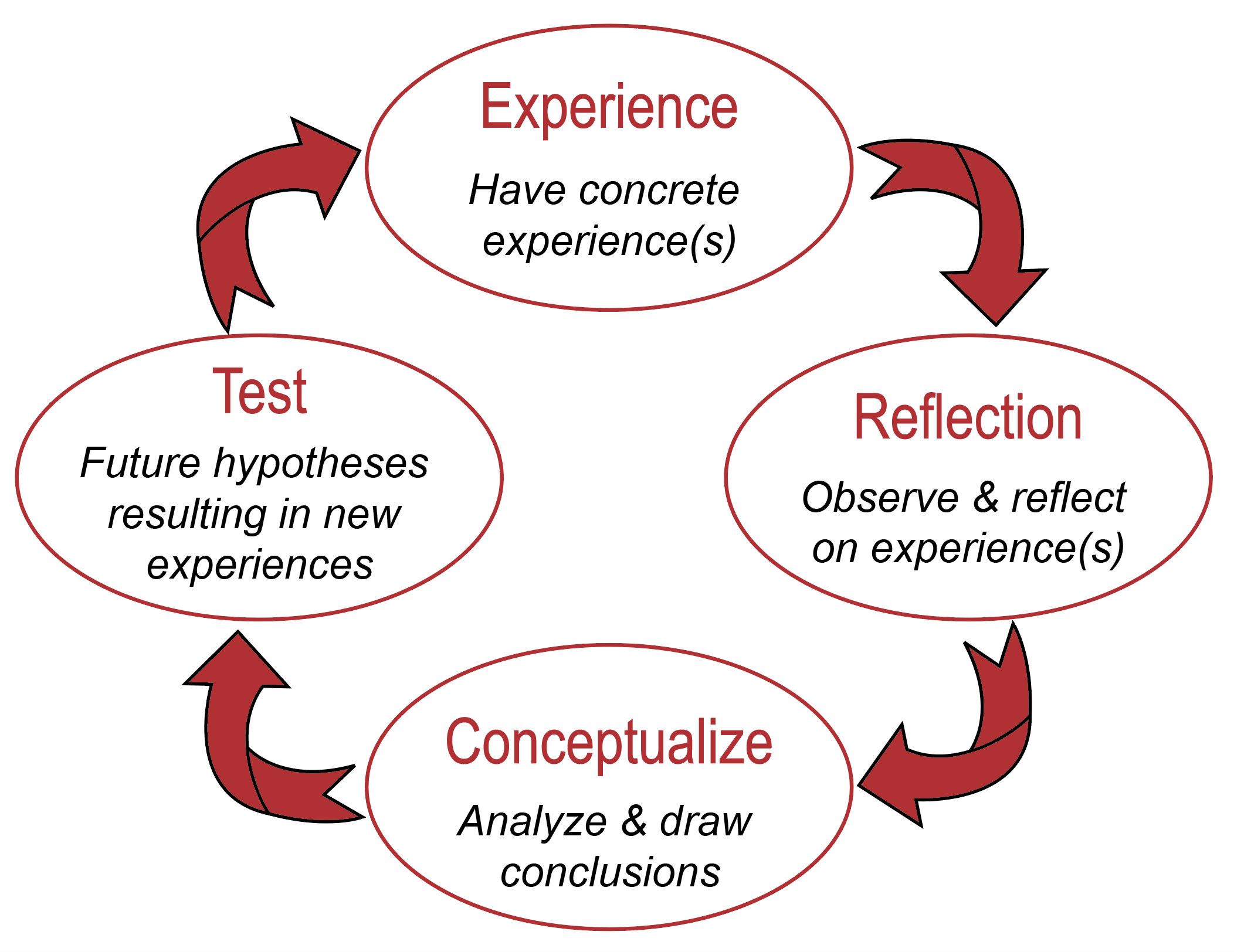A construction site is not traditionally what you would consider a standard classroom environment for a university undergraduate course. However, if you understand the concept of experiential learning, then the setting is absolutely perfect.
Approximately 50 University of Maryland (UMD) undergraduate students visited the site of the Brendan Iribe Center for Computer Science and Innovation that is currently under construction on the UMD College Park campus. The students went to “experience” construction management, courtesy of The Whiting-Turner Contracting Company.
The visit marked one of several the Introduction to Construction Project Management class will take over the course of the semester to reinforce what they learn in the classroom with supportive, concrete experiences. Taught by Stephen Wooldridge, adjunct professor at the UMD Project Management Center of Excellence, the junior/senior level undergraduate course uses experiential learning techniques to educate students on basic topics in sourcing, planning, financing, designing, constructing, and operating facilities.
According to the theory of experiential learning (Kolb), the most effective learning takes place when students’ progress through a 4-stage cycle (shown below). This cycle begins with a “concrete experience” which is, in this case, the visit to the construction site. The key here is students’ active involvement in the learning process. They are not learning by watching a video, listening to a lecture, or even reading about it.

The second stage of the cycle involves reflective observation, which the students did both during and after the visit to the new Brendan Iribe Center. Throughout the visit, students were able to ask questions, make connections between classroom concepts and on-the-job applications, and discuss the project with the Whiting-Turner staff. Throughout the tour, Whiting-Turner staff provided students with their industry knowledge and expertise, highlighting the responsibilities of a Construction Manager at Risk. The class learned that this project delivery approach, where a company commits to deliver the project within a guaranteed maximum price, is one of four of the most commonly used in the construction industry.
During the third stage of experiential learning, students expand upon the concepts, connections, and vocabulary they have learned. At this stage, students begin to interpret what they learned, make comparisons, and draw on theories, models, and frameworks they have learned in the classroom.
The final stage of the experience learning cycle is often called “active experimentation.” This is when students begin to consider how they might use what they have learned. The experiential learning theory is clear in stating that learners need context. If the learner is not able to see how a concept might be useful to his or her life, then it is likely to be forgotten. It’s important, therefore, to give them time to plan, use case studies, use role plays, and encourage them to use real-life problems.
“Realizing ideas in a built form through the design and construction process is complex and multi-disciplined,” says Wooldridge. “To bring this process to life, ENCE325 students are immersed in real-world projects and introduced to industry leaders who work every day delivering them.”
Before the end of the semester, these students will have additional learning opportunities and experiences courtesy of experts from ARCO Construction, Jacobs Engineering, Clark Construction Group, and HITT Contracting.
Continued use of industry experts and different types of learning techniques are just two of the things that make the courses and programs available through the University of Maryland’s Project Management Center for Excellence highly sought after. The Center offers undergraduate engineering and architecture students two different minors: Project Management and Construction Project Management. Stephen Wooldridge’s ENCE325 Introduction to Construction Project Management course is one of four core courses for the Construction Project Management minor. Besides the two undergraduate minors, the UMD Project Management Center for Excellence offers a practice-oriented Master of Engineering in Project Management Program designed to take students beyond theoretical concepts and provide them with the practical project leadership, critical thinking, and problem-solving skills needed to prepare them for future challenges and rapid career advancement. All courses are offered in both an online and classroom formats for student convenience and flexibility.
Reference
Experiential Learning Theory: A Dynamic, Holistic Approach to Management Learning, Education and Development, Kolb, A., & Kolb, D. A. 2009, P. 42-68. The SAGES Handbook of Management Learning, Education and Development. Edited by S. J. Armstrong, and C. V. Fukami.
Posted by Kathy Frankle on September 29, 2017

 Data Analytics for the Project Manager
Data Analytics for the Project Manager